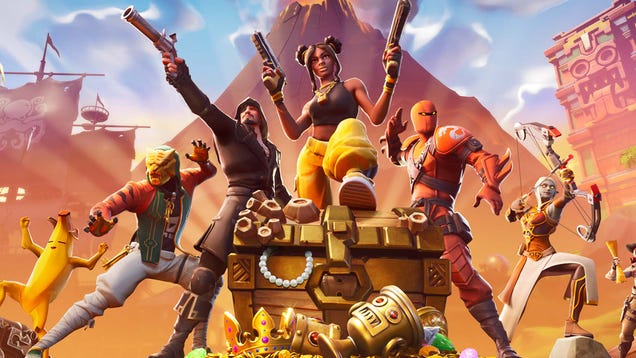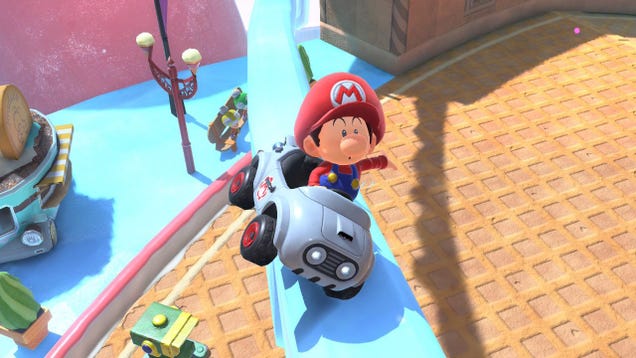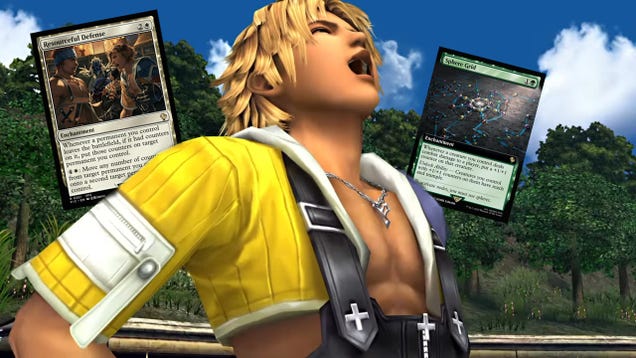Affirm Brings BNPL to Fortnite & More Games!
Wait, You Can Now Finance Your Fortnite Skins? Affirm Teams Up with Xsolla for BNPL in Games!
Ever gazed longingly at that ridiculously cool new outfit in your favourite free-to-play game, but your wallet just screamed “Nope!”? Or maybe you’ve been eyeing a substantial in-game bundle that feels just a *little* bit out of reach right now? Well, big news, gamers! The “buy now, pay later” (BNPL) phenomenon is crashing the party, and it’s about to change how some of us snag those coveted digital goodies.
Yep, you heard that right. That shiny new system of splitting payments is making its way into the gaming world thanks to a fresh partnership between retail payment powerhouse Affirm and the gaming commerce titan Xsolla. Soon, if you’re looking to drop $50 or more on in-game purchases, you might be able to spread the cost over several payments. Does this open up a world of possibilities for your digital fashionista dreams, or is it a slippery slope to a mountain of microtransaction debt? Let’s dive in.
The Lowdown: Affirm, Xsolla, and Your Digital Wallet
So, what’s the big deal here? Simply put, Affirm, a major player in the BNPL space (think of them as a modern, tech-forward layaway but without the waiting), has joined forces with Xsolla. If you’re into gaming, especially free-to-play titles, you’ve probably interacted with Xsolla without even realizing it. They’re the invisible wizard behind the curtain for countless game developers, handling everything from purchase processing to monetization for a vast array of games, including behemoths like Fortnite.
This collaboration means that Xsolla will integrate Affirm’s payment options into their platform. What does that mean for you? It means that when you’re checking out with your in-game purchases through an Xsolla-powered storefront, if your cart hits that $50 mark or more, you’ll likely see Affirm pop up as a payment option. Instead of paying the full sum upfront, qualified users can opt to pay in instalments, often interest-free for shorter terms, or with interest for longer repayment periods.
This isn’t just about microtransactions for a new dance emote; it could apply to larger bundles, season passes, or even substantial in-game currency packs. Imagine being able to snag that ultimate character bundle or a year’s worth of battle passes without feeling the full pinch in a single go. For many gamers, especially those operating on tighter budgets or waiting for their next payday, this could be a game-changer, making previously unaffordable items suddenly accessible.
Why Now? The Rise of BNPL and the Evolution of Gaming Commerce
The timing of this partnership isn’t accidental. The BNPL market has absolutely exploded in recent years. It’s moved from a niche offering to a mainstream payment method, especially popular with younger demographics who may not have traditional credit cards or prefer more flexible payment solutions. Major retailers across fashion, tech, and even travel have embraced BNPL, seeing it as a way to boost conversions and increase average order values. It was only a matter of time before it made its real splash in the gaming world.
Gaming commerce itself has also been evolving at lightning speed. Free-to-play games, fueled by in-app purchases, have become the dominant business model for many of the biggest titles on the planet. From cosmetics to convenience items, players are spending billions annually. However, the psychological barrier of a high upfront cost for a purely digital item can still deter some. BNPL effectively lowers that barrier, presenting a large purchase as a series of smaller, more manageable payments. It’s a clever psychological trick that retailers have perfected, and now it’s arriving in your favourite virtual worlds.
Furthermore, Xsolla’s role as an aggregator for payment solutions across a vast number of games makes them the perfect partner for Affirm. By integrating with Xsolla, Affirm instantly gains access to a massive and diverse gaming audience without needing to strike individual deals with hundreds of game developers. It’s a strategic move that positions Affirm at the forefront of in-game financing, potentially setting a new standard for how gamers pay for their digital entertainment.
Navigating the New Frontier: Benefits and Potential Pitfalls
On the surface, this sounds like a win for everyone, right? Gamers get easier access to premium content, and game developers potentially see increased revenue. But as with any new financial tool, it’s essential to understand both the upsides and the potential downsides.
The Good Stuff: Flexibility and Accessibility
- Budget Management: For many, BNPL offers a fantastic way to manage their budget. If you’ve got your eye on a big in-game purchase but don’t want to blow your entire entertainment budget on it this month, splitting the cost can be incredibly helpful.
- Instant Gratification: No more waiting! If you qualify, you can get that item or bundle immediately and pay for it over time, rather than having to save up. This is particularly appealing in a fast-paced live-service game where events or limited-time offers come and go quickly.
- Accessibility for All: Players who might not have traditional credit access, or who simply prefer not to use it, can now participate in larger in-game purchases without needing to save a large lump sum.
- Big Purchases Made Easier: Think about those massive bundles or limited-time offers that cost upwards of $100. Suddenly, a $25 per week payment feels a lot less daunting than a single $100 charge.
The Not-So-Good Stuff: Responsible Spending is Key
- The Debt Trap: This is the biggest concern. While BNPL often boasts “interest-free” periods, these typically apply to shorter repayment terms. Longer terms can accrue interest, and missing payments can lead to hefty late fees and impact your credit score. It’s crucial to treat BNPL like any other form of credit: only borrow what you can realistically afford to pay back.
- Impulse Buying: The ease of BNPL can encourage impulse purchases, leading you to spend more than you originally intended. Seeing a large sum broken down into small, digestible chunks can make you feel like you’re spending less than you actually are.
- Digital vs. Tangible Value: Unlike a physical product that you keep, many in-game purchases are cosmetic or offer temporary advantages. Financially, it’s a different proposition to be paying off a digital skin for months compared to, say, a new washing machine. Understanding the value proposition of what you’re buying and its longevity is important






